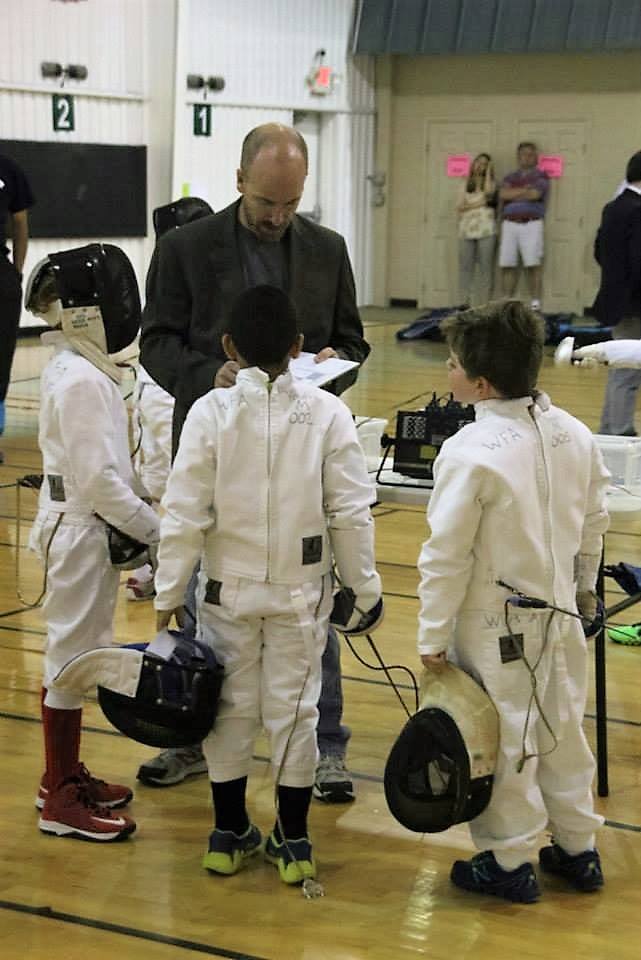How I Became a Referee

Hi I’m Dan, I coach here, and I’ve been known to referee the occasional tournament.
When I started fencing, most collegiate tournaments that I attended had dedicated referees, while most local USA Fencing tournaments were refereed by other fencers. Generally, fencers would have a pretty good idea who was at the tournament and consensus would determine who refereed which bouts. Occasionally (usually when the stronger referees fenced each other), fencers would find themselves at the mercy of a ref with no understanding of the phrase. This rarely ended well.
After fencing a few years, I became one of the fencers asked to referee matches in my events. It wasn’t the most fun aspect of my life, but it was better than a sharp stick in the eye. In 1995, my then fiancée, now wife, and I moved to Texas and started traveling to tournaments with the Texas A&M Fencing Club. Since I was at the tournaments all weekend, but only fencing saber, I started refereeing the foil and epee events in return for food, my saber entry, and sometimes a little cash.
Midway through 1996, I signed up to referee at Summer Nationals. I tested, was observed, and refereed my first national event in July 1996. It was an eye-opening experience for which I was not as prepared as I thought. Pro tip, some people take their fencing incredibly seriously and insist on Olympic caliber refereeing at all times. Caveat, this is not correlated with their understanding of fencing, or what constitutes Olympic caliber refereeing.[1] Still, I came away rated 5 in foil and epee (first round of a top level national event), and a year later added a 5 in saber to my list.
I continued to referee at the occasional national event next 8 years, along with a steady list of local and regional events. I became fairly popular with most of the better area fencers, amassed a small arsenal of stories, saw a large body of fencers grow from noob to elite, and eventually disappeared from the refereeing scene as my coaching duties took more and more of my time.
Refereeing is a great way to subsidize a fencing habit, but hard work. Be prepared for verbal abuse, long hours, and a shocking level of work. Still, it will give you an appreciation of fencing actions that is hard to get otherwise, and an insight into the groundwork behind different schools of thought.
[1] Like toddlers thinking fair means getting their way, many fencers equate quality refereeing with getting the touch.
Interested in becoming a referee? Dan didn’t scare you away? Sign up for Coastal Bend Fencing Society’s referee clinic on July 9!
